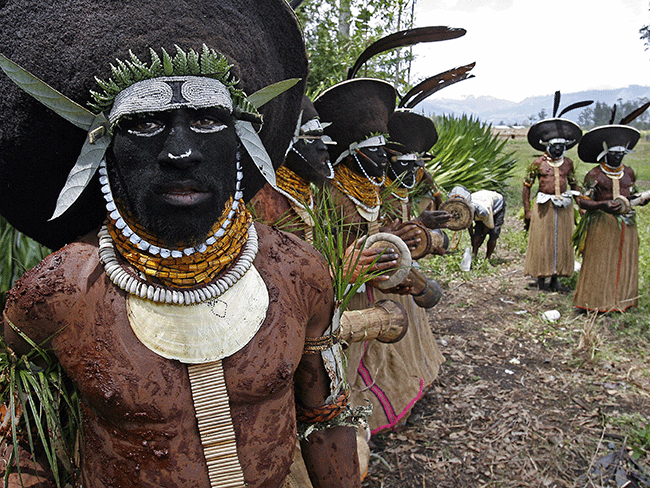Woman accused of sorcery in Papua New Guinea 'hacked to death'
Misila was saved from death by police and missionaries in January

Your support helps us to tell the story
From reproductive rights to climate change to Big Tech, The Independent is on the ground when the story is developing. Whether it's investigating the financials of Elon Musk's pro-Trump PAC or producing our latest documentary, 'The A Word', which shines a light on the American women fighting for reproductive rights, we know how important it is to parse out the facts from the messaging.
At such a critical moment in US history, we need reporters on the ground. Your donation allows us to keep sending journalists to speak to both sides of the story.
The Independent is trusted by Americans across the entire political spectrum. And unlike many other quality news outlets, we choose not to lock Americans out of our reporting and analysis with paywalls. We believe quality journalism should be available to everyone, paid for by those who can afford it.
Your support makes all the difference.Calls have been made for authorities in Papua New Guinea to prevent the killing of women accused of sorcery after a woman was reportedly hacked to death.
The woman, known as Misila, was accused of black magic and reportedly killed in a remote part of the highlands by attackers from another village last week.
Human rights group Amnesty International said that authorities in Papua New Guinea needed to offer more protection to two other women also accused of sorcery.
Kate Schuetze, Amnesty International’s Pacific Researcher, said: “The vicious killing of Misila highlights the Papua New Guinean government’s persistent failure to address the wave of attacks against those, mainly women, accused of ‘sorcery’. The government must act immediately to ensure that the perpetrators of such attacks are brought to justice.”
“The fact that two other women who only narrowly escaped death last week are at imminent risk means that the government must act now.”
Schuetze said protection needed to be given to these women and that police needed to be given resources to travel to remote communities to ensure that attacks were investigated.
Perpetrators, she said, needed to be brought to justice in fair trials.
In January, Misila was one of four women who were saved from death by police and missionaries. They were accused of sorcery after several people died from a measles outbreak in Enga province last year.
Police deputy commander Epenes Nili of Enga province took part in the intervention.
He told Guardian Australia: “The lady, she was accused of performing magic resulting in the death of several people in the village. With this total lie, just because of the strong belief in [sorcery] there, she was murdered. Not by a relative but by another group of people.”
“I was so frustrated and so angry at what really happened, I am now compiling a full report."
Nili said: "What I will be doing is asking everyone to make a submission and request to the parliamentarians and the leaders if they can fund my trip to fly about 10-12 policemen including a medical doctor to exhume the body and conduct a post-mortem and immediately arrest the suspects, those who are aiding the suspects and those who took part in the murder…”
The 1971 Sorcery Act, which gave reduced sentences for those who committed assault or murder if they believed their victim had committed acts of sorcery, was repealed by the Papua New Guinean government in 2013.
Subscribe to Independent Premium to bookmark this article
Want to bookmark your favourite articles and stories to read or reference later? Start your Independent Premium subscription today.
Join our commenting forum
Join thought-provoking conversations, follow other Independent readers and see their replies
Comments